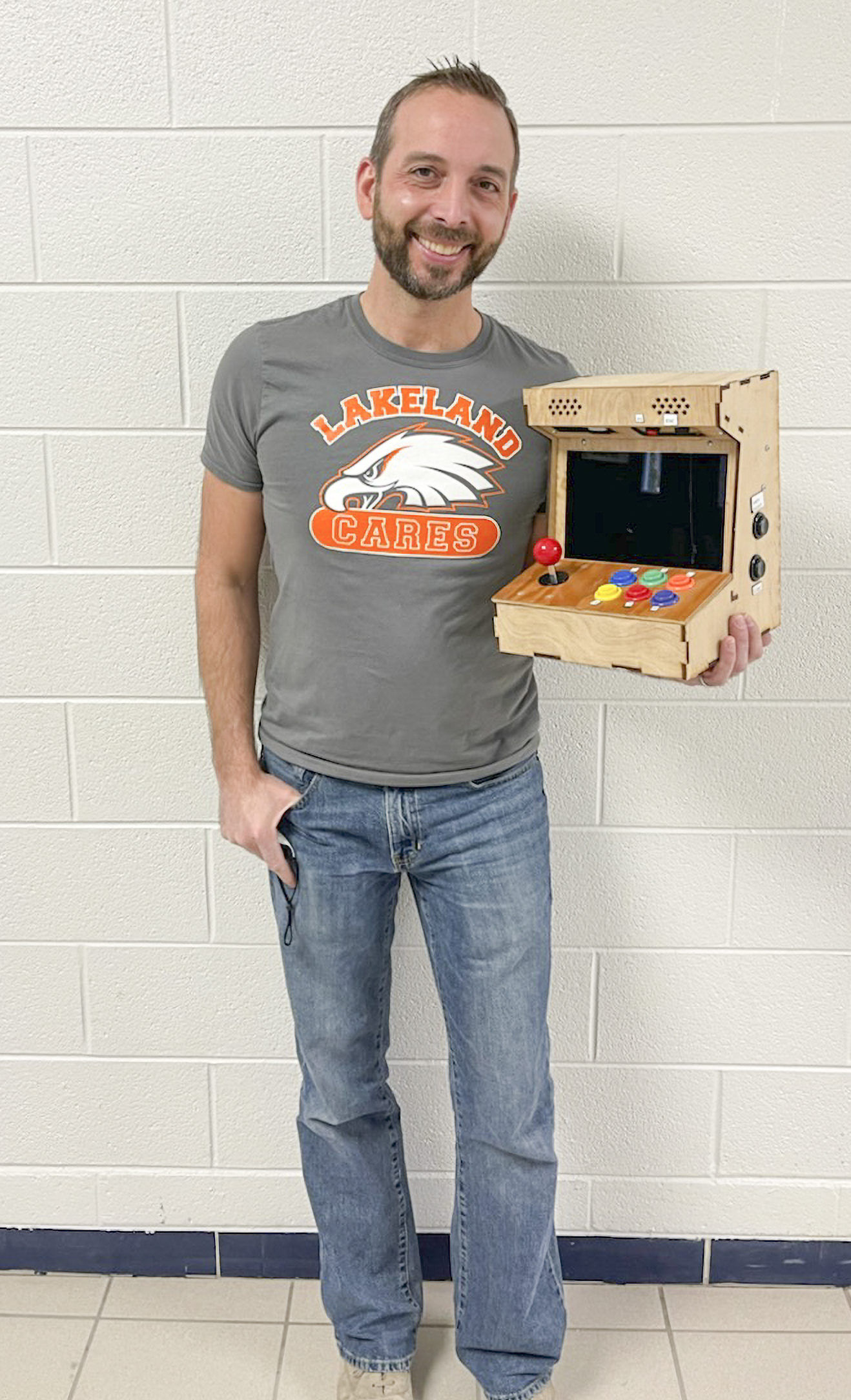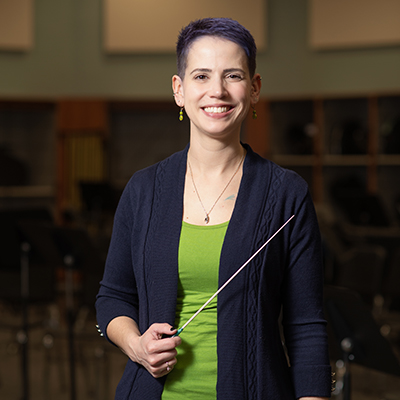Member Spotlight: Isaac Perry
In college, Isaac Perry realized architecture wasn’t for him. Instead he recalled his seventh-grade teacher saying he was a strong writer—which grew into an English teaching career. As English department chair at Huron Valley’s Lakeland High School, he is loved by students in his… computer science classes? Wait, what?

How did computer science enter the picture?
It’s kind of a funny story. In my personal life, I was famous among my friend group as the one guy who didn’t have a cell phone until maybe 2013. But several years back I read a college admissions essay from an AP Language student about how he taught himself to program. And by the time he was graduating high school, he had written some apps and made some money doing tech services. That student now, by the way, has his dream job working for Google. I talked to him, and my takeaway was, “If students are teaching themselves and getting a jumpstart on careers, why are we not teaching this?” The problem is finding teachers for it. For most people who graduate college with a computer science degree, it’s a lot more lucrative to go into private industry.
How hard was it to add computer science to your English teaching?
I was able to get a business endorsement on my teaching certificate from work that I had done in my community. And I got authorization to teach it. So I did a summer institute with Code.org, and then I launched. The biggest thing is that I had to be willing to work at learning a skill that I had no background in, and it still requires a significant dedication of time beyond the classroom. But I’m reaping all the benefits of taking the leap.
What are the base skills someone needs to teach it?
Patience and perseverance. At times it can be frustrating, and you’ve got to stay at it. I also had to be willing to tell students, “Yes, I am your teacher, but in many ways I am the lead learner.” Some students probably know more than I do, but my role isn’t to be knowledge gatekeeper. I am the facilitator of learning.
No need to be a math whiz?
No, not at all. You need an interest in the field, a willingness to learn alongside students, and a passion for providing really positive experiences. I’ve got my kids programming music now. We’re playing with robots in this class. We built arcade systems. The first year I taught it, we bought these desktop arcade systems and we built them from the ground up. There are resources galore for this content area.
This year the College Board gave you the AP Computer Science Female Diversity Award. How do you attract non-traditional students to the class?
Code.org dedicated a segment on how to reach out to non-traditional populations, students of color and females, particularly. But when I launched the computer science classes at Lakeland, I think what allowed me to connect with female students was the fact that I was teaching AP language and those classes tend to be a bit more female-dominated. I think a lot of students enjoyed me as an English teacher, and they wanted to have me again even if they weren’t all that interested in computer science. By the second year, I had a ton of applicants, and I decided to keep a 50/50 male-female split.
What would you say to a teacher thinking of a similar leap?
Never in a million years would I have expected to end up teaching computer science. Most people laughed when they found out that—wait, the guy who doesn’t carry a cell phone—you’re going to teach computer science? But it’s reinvigorated me as a teacher, and it’s given me a whole new set of skills. I’m getting students to sign up. I’ve got a nice diverse group to work with. I feel like the luckiest person with this job and the decision to go down this road. I’ve just loved it.


